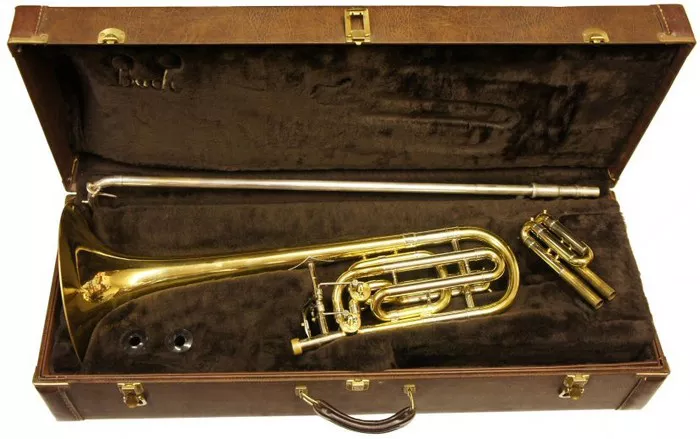The trombone, with its distinctive sliding mechanism and rich brass sound, is a popular choice for beginners entering the world of brass instruments. When considering purchasing a trombone for a novice player, various factors influence the cost and quality of the instrument. This article delves into the price range of beginner trombones, factors affecting their cost, differences between branded and non-branded options, recommendations for specific models, additional costs to consider, buying tips, and the value of investing in a quality instrument for beginners.
Price Range
Beginner trombones typically range in price, with entry-level models starting around $350. Prices can vary widely based on factors such as brand reputation, materials used, craftsmanship, and additional features.
Factors Affecting Cost
Several key factors contribute to the cost of a trombone:
Brand: Established brands with a reputation for quality craftsmanship and durability tend to command higher prices than lesser-known brands or generic instruments.
Materials: The type of materials used in construction, particularly the quality of brass alloys, affects both the sound and the durability of the trombone. Instruments made from higher-grade materials often cost more.
Craftsmanship: The level of detail and precision in manufacturing significantly impacts the instrument’s playability and overall quality. Handcrafted trombones generally cost more than mass-produced ones.
Features: Additional features such as adjustable slides, ergonomic design enhancements, and specialized finishes can increase the price of a trombone.
Brand vs. Non-Brand
Choosing between branded and non-branded trombones can be pivotal in determining quality and cost:
Branded Trombones: Instruments from well-known brands like Yamaha, Bach, Conn-Selmer, and King are typically more expensive but offer assured quality, consistency in manufacturing, and reliable customer support.
Non-Branded Trombones: Generic or lesser-known brands may offer lower initial costs but often sacrifice quality in terms of materials, craftsmanship, and longevity. They may also lack the same level of resale value and warranty support as branded instruments.
Recommendations
For beginners looking to invest in a quality trombone without breaking the bank, here are some recommended models along with their approximate prices and notable features:
Yamaha YSL-354 Trombone – Approximately $600
- Renowned for its smooth slide action and balanced tone.
- Durable construction suitable for beginners.
Bach TB301 Trombone – Approximately $700
- Trusted brand known for its clear and responsive sound.
- Lightweight design for comfortable playing.
Conn-Selmer Prelude TB711 Trombone – Approximately $500
- Budget-friendly option with good playability.
- Quality materials and construction.
King 606 Trombone – Approximately $800
- Classic design with a rich, warm sound.
- Reliable and durable for long-term use.
Additional Costs
When budgeting for a beginner trombone, consider these potential additional costs:
Accessories: Essential accessories such as a mouthpiece, slide lubricant, and cleaning kit are necessary for maintenance and optimal performance.
Maintenance: Regular maintenance, including cleaning and occasional repairs, ensures the trombone stays in good condition and prolongs its lifespan.
SEE ALSO: How Hard is it to Learn Trombone?
Buying Tips
When shopping for a beginner trombone, keep the following tips in mind:
Size and Weight: Choose a trombone that is comfortable to hold and play, especially considering the age and physical strength of the beginner.
Ease of Play: Look for an instrument with smooth slide action and responsive valves, making it easier for beginners to produce clear tones.
Quality Assurance: Opt for instruments backed by warranties and reputable customer service to address any issues that may arise.
Investment Value
Investing in a quality beginner trombone offers several benefits:
Learning Experience: A well-made trombone enhances the learning experience by making it easier to produce good tone quality and learn proper technique.
Progression: As beginners advance in skill, a quality instrument can grow with them, supporting their musical development and facilitating a smoother transition to intermediate and advanced playing.
Resale Value: Branded trombones often retain better resale value compared to non-branded counterparts, providing a potential return on investment if the player decides to upgrade or change instruments.
Conclusion
In conclusion, while the initial cost of a trombone is an important consideration for beginners, the long-term value and quality of the instrument should not be overlooked. By choosing a reputable brand and considering factors such as materials, craftsmanship, and additional costs, beginners can make an informed decision that enhances their musical journey with the trombone. A well-chosen instrument not only facilitates learning but also inspires continued progress and enjoyment in playing music.


